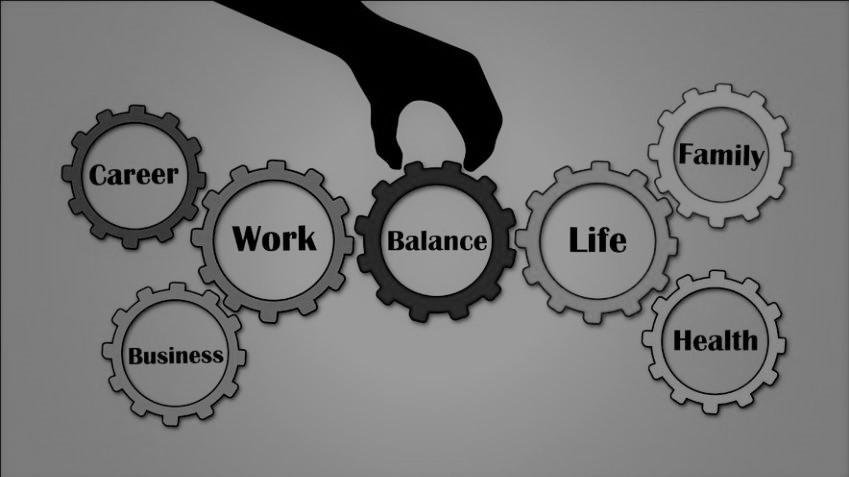
Stories Talk | Presentation Skills and Effective Storytelling
Stories Talk | Presentation Skills and Effective Storytelling
#wellbeing #balance #worklifebalance #success #thehumaneffect
By Mia Kollia
Translated by Alexandros Theodoropoulos
When we talk about a good and adequate balance of professional and personal life, we mean the harmony between the different aspects of our daily life. With concentration, time management and dedication, we can learn to combine work and personal life successfully (work-life balance).
The basic misconception about the idea of work-life balance is that we assume that we can apply a certain number of practices and have a final and lasting result. But that’s not true.
What we are actually called to do is to activate a continuous "negotiation" that will fit the real needs of our lives, no matter how different our case may be. Of course, as we approach this "negotiation", we must have the right tools that will empower and support us in this journey.
The balance of personal life and work presupposes an internal and emotional balance too. In order to achieve what is analyzed below, we should want to give ourselves enjoyment and satisfaction. We have to be able to love ourselves, spend time with us and endure in time. If we don’t believe that we deserve a happy and balanced life, then we will never be able to properly evaluate how much work we actually need and when that becomes unbearable for our soul.
How to avoid burnout?
1. By saying no to the hysteria of perfectionism
Most of us deny stopping working when something hasn’t been as expected on a day of work. Or, we think so much about the project we have left in the middle that we cannot concentrate on anything else, even if there’s no deadline to be delivered. It’s a matter of character.
Perfectionism has been scientifically linked to burnout, so the first step is to protect ourselves and our work from the possibility of not being able to cope with the needs of our daily lives.
Good time management, as well as many of the following tools, will complement each other to help us escape the trap of perfectionism.

2. Staying away from digital media
Our daily dependence on digital media has lengthened our working time and has brought the workplace into our home even in non-office hours.
Although many countries are now passing laws prohibiting employers from sending messages or emails to their employees, vigilance and determination is needed to reduce our dependence on our devices.
Modern scientific studies have shown that excessive time spent on digital media, online platforms and related devices during the day, makes us so mentally tired that we are led to attention deficit-hyperactivity disorder (ADHD).
By limiting the time we spend daily to the necessary activities that we need to do on our phone, laptop or computer, we free up time that we can spend with our loved ones or doing something we really enjoy.
3. Reassessment of priorities
It’s important to try to make time in our lives for all the things that are necessary and need to be done but also for those that we enjoy and that make us feel excited.
A structured re-evaluation process may take two or three times a year to avoid falling into the traps of routine.
The questions we need to ask are:
- What are we willing to sacrifice?
- For how long?
- Is X activity necessary?
- Do we regret something we’ve done or can we regret it if we don’t change something?
Our priorities change from time to time and we need time and calm to be able to see their true requirements and how much time we need to spend on them.
4. Proper time management
Our most basic tools – a calendar, lists and a watch - are the most important. But before we start, we must have a detailed overview of the situation. We can record all our work and activities for a week in a diary along with the time they took.
When gathering information, we need to carefully analyze which tasks or activities are unnecessary and spend our time in vain. We should reevaluate what really needs to take place in our daily life and what doesn’t.
Managing our daily routine is a difficult task, especially when we have a family with children and very demanding tasks, but with patience and perseverance, it is something we can learn to approach in a healthier and more functional way.
5. Happiness at the core
Sometimes, it seems that our life is just a routine of obligations. We go from one job and obligation to another and end up exhausted. This is definitely a sign of burnout and it means that we need to significantly change our daily lives.
This is the time to think about what changes in our schedule would make us happier; not more efficient, not more successful, but happier. We all deserve a life to live with pleasure.
Our work is always a very important part of our lives and it certainly makes us fulfilled to be good at what we do. But we just cannot let our work occupy and ultimately oppress our lives!